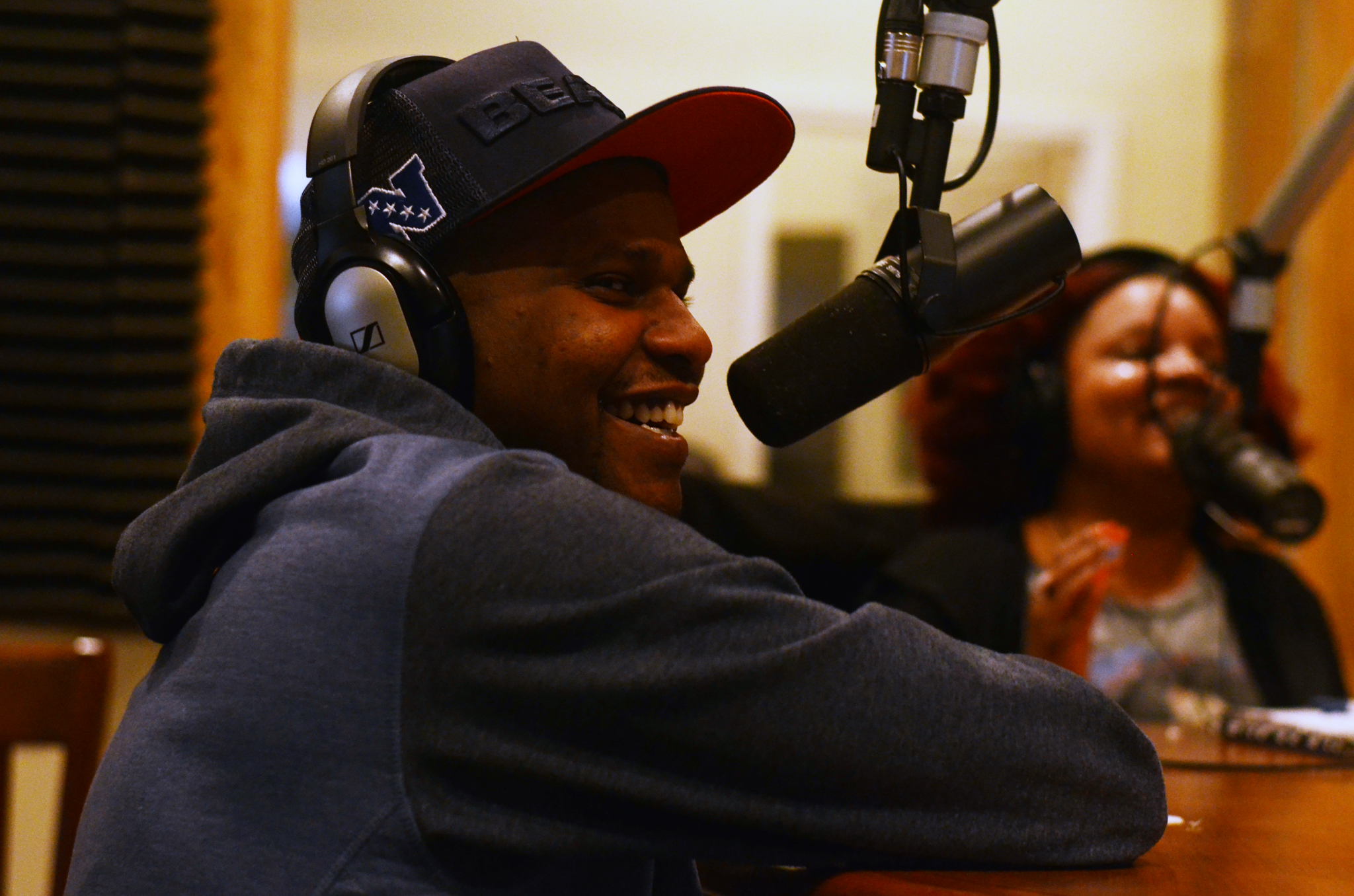Sixteen months ago, prominent organizer and minister Leon Finney Jr. decided to ring in his seventy-fifth birthday bash with some big news: the Woodlawn Community Development Corporation was launching an initiative to give South Side black communities a multimedia production center. Just a few doors down from his Metropolitan Apostolic Community Church, Finney packed a historic Bronzeville mansion with the fruits of his networks and resources, creating Urban Broadcast Media (UBM). His vision: to “allow people of color to have a voice.”
Since then, donors such as PNC Bank, ComEd, and Community Trust Credit Union have invested about $700,000 to renovate the brightly colored house on King Drive for UBM, which is now filled with state-of-the-art acoustic equipment, rentable recording studios, and production rooms. Finney sees UBM as a black-owned media enterprise in the same vein as The Chicago Defender, Negro Digest, or any other historical black media institution in the U.S., and as a means of regaining control over the way black Chicagoans’ stories are told. In a world where a few large corporations control the vast majority of media outlets, the efforts of local broadcasting centers, especially those for black media, are often overshadowed.
Pointing to a table laden with mainstream media publications, Finney explains, “At this particular moment in history, looking at owned media, blacks do not have a voice.” Central to UBM’s mission is the incorporation of black Chicagoans’ perspectives.
UBM’s founding proved fruitful—it’s emerged as one of the South Side’s premier locations for young broadcasters. Its radio programming spans three branches: UBM Talk, Jamz, and Praise. Interns from schools like Kennedy-King College fill all four stories of UBM’s facilities, working alongside permanent members of the staff. Young interns and students form the majority of the broadcasting and production portions of the center. According to Finney, “Young people run this place. They run the radio, they’re in the studios, they’re making things happen.”
Finney says the next step is UBM Tech, a training institute for young people from ages sixteen to twenty-four that will train them to understand technology as a producer, rather than simply a consumer. Alluding to the power of social media in particular, Finney picks up my phone and says, “This thing is powerful. Kids already know how to use it to communicate; why not understand what they can do with it on a business agenda?” He hopes the new institute will help young people understand the business implications of the skills they already possess.
When I asked Finney where UBM hopes to be in the near future, he explained that in a year’s time, UBM hopes to explore new media areas, like commercial advertising, and invest heavily in podcasting projects. Regardless of future forms, the goal will remain the same: to secure representation of the black experience by way of black voices.

